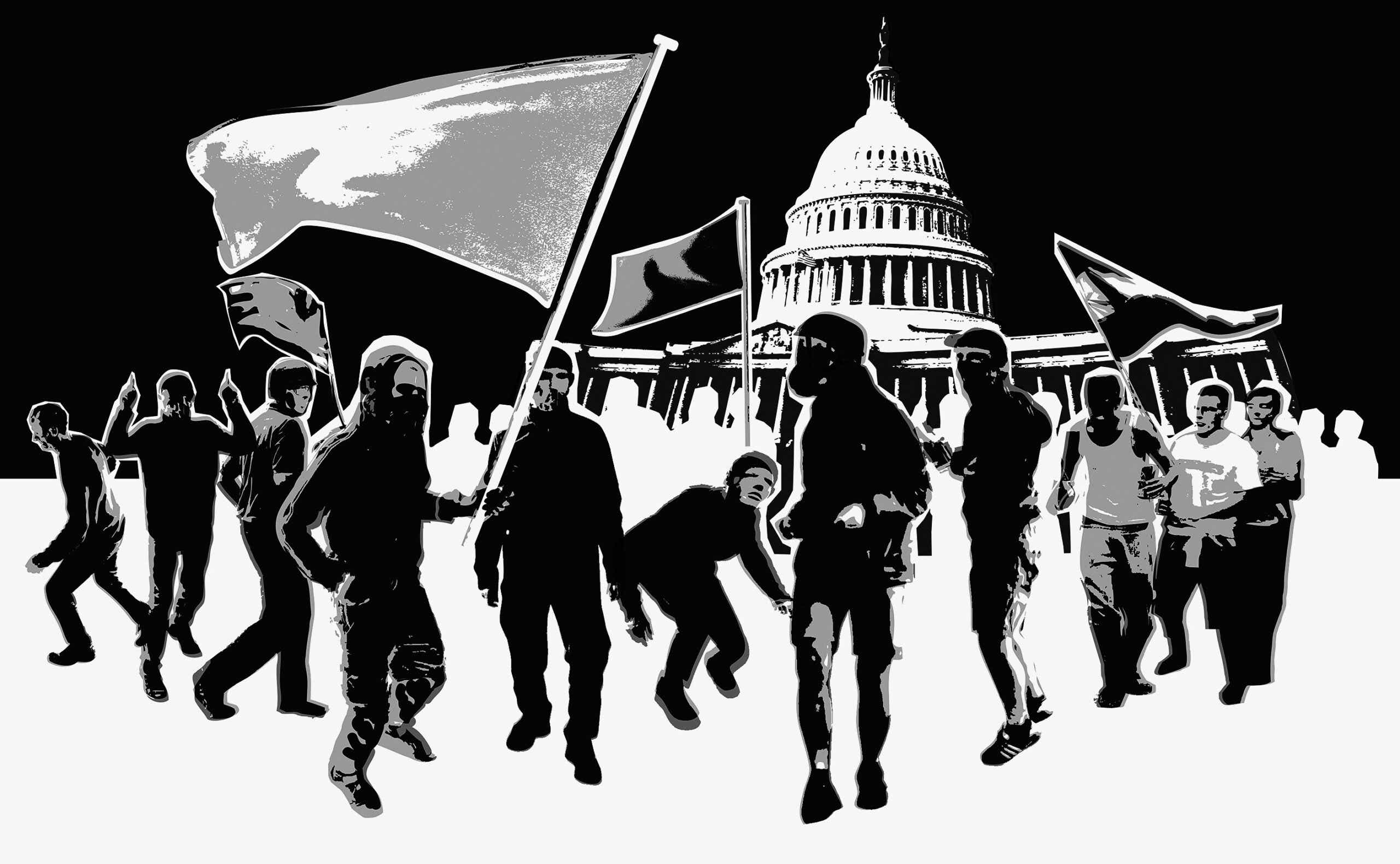As the countdown to the midterm elections hits the final stretch, experts are worried about the possibility of voter intimidation and violence. Shannon Hiller, a researcher who studies political violence at Princeton University, told NPR that her team is already seeing “concerning” activity and rhetoric.
Our nation’s leaders are also sounding the alarm: On Wednesday, President Biden warned that the “assault on our democracy” that began on Jan. 6, 2021, isn’t over yet. “We must, in this moment, dig deep within ourselves and recognize that we can’t take democracy for granted any longer,” Biden said from Union Station in Washington, D.C, which is blocks away from where the insurrection took place.
This comes after a number of unsettling events. Just last Friday, Speaker Nancy Pelosi’s husband Paul was attacked inside their home with a hammer, and on that same day federal agencies released an internal bulletin warning of a “heightened threat” to the 2022 elections driven largely by conspiracy theorists and election deniers.
But elected officials and political candidates aren’t the only ones who could be at risk: Election workers as well as religious and racial minorities are cited as all potential targets, according to the memo distributed to the Department of Homeland Security, FBI, National Counterterrorism Center and the U.S. Capitol Police.
Here’s a breakdown of where experts are the most concerned and what’s being done to protect voters casting their ballots on election day.
Where are election threats most concerning?
Hiller, an executive director of the non-partisan Bridging Divides Initiative, says her team is closely tracking close races in several swing states, including Pennsylvania, Wisconsin, Michigan, and Georgia. These are also areas where false election claims have run rampant and been embraced by some political leaders.
“They’re [states] where there are senior leaders, specifically in the Republican Party, that are already calling into question the results of the election or have a history of advocating for violence or condoning violence around it,” she said.
Meanwhile, in Arizona, there have been reports of armed ballot watchers following voters or taking photos and videos of people dropping off ballots during early voting. Following concerns from the Justice Department, U.S. District Court Judge Michael Liburdi banned an election-watching group known as Clean Elections USA from intimidating voters in the state, which is illegal under the federal Voting Rights Act. According to the protective order, the group can’t come within 75 feet of a ballot drop box, and it also can’t openly carry firearms, or wear body armor within 250 feet of drop boxes.
Should voters be worried about heading to the polls?
Though these concerns about security around the midterms are real, there haven’t been any specific threats, and as Hill points out, there was “very little” violence around election day itself in 2020. If anything does occur, experts believe it will likely be after the fact, when ballots are being counted.
But officials aren’t going to take any risks and will be taking additional safety measures for election day. Just this past summer, the Justice Department formed a new unit to handle threats called the Threats to Election Workers Task Force. On the local level, voting officials are taking action and training officials at polling stations on how to handle any potential threats.
“We’ve done a lot of training with clerks on how to de-escalate situations, some active shooter training and then had a lot of conversations with emergency management, law enforcement about how to handle things that may come up,” Scott McDonell, a county clerk in Dane County, Wisconsin told NBC affiliate KARE-11.
The bottom line
Experts remain optimistic about the strength of U.S. democracy to withstand any potential threats. Plus, the upcoming midterms could also prove to be a valuable “dry run” for what to expect in the 2024 presidential election.
“One of the stories of 2020 for me is that many of the fail-safes worked,” Hill said. “The court systems were effective. A lot of the recounts that happened were incredibly effective and folks were able to surge resources to those locations.”









